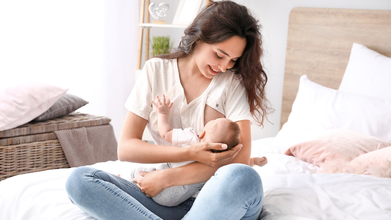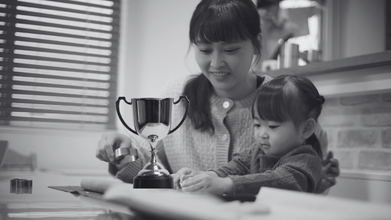- Health Conditions A-Z
- Health & Wellness
- Nutrition
- Fitness
- Health News
- Ayurveda
- Videos
- Medicine A-Z
- Parenting
- Web Stories
Why Snatching the Phone May Not Be the Ultimate Parenting Tip for Teens

It’s almost a reflex action now - your teen seems distracted, moody or defiant and the first thing you reach for is their phone. Many parents believe that once the phone is gone, their child will start behaving better, focusing more and feeling calmer. But psychologists say this approach may be oversimplifying a complex emotional landscape.
The Real Issue: Teens Want to Be Understood, Not Controlled
Teenagers today are navigating a world far more layered than the one their parents grew up in. Their phones are not just gadgets, they are extensions of their identity, their social life and even their coping mechanisms. When parents link every behavioural problem to 'too much screen time' teens feel misunderstood and invalidated.
Also Read: Popcorn Brain: Is This Syndrome Behind Your Difficulty Concentrating? Experts Explain
“I am tired of being told that if I stop using my phone, I will feel better. My phone isn’t the problem, it’s how I connect with friends and keep up with what’s happening around me. Why should the rules be different for adults and for us?" says 16-year-old G. Kaur
This sentiment echoes across many teenage households - the need to be heard rather than judged. Their brains are still developing, firing signals of independence and identity formation, which often clash with parental control.
Why Parents React the Way They Do
For many parents, taking away the phone feels like the only available disciplinary tool. “Whenever I feel helpless about my son’s behaviour, my instant reaction is to taunt him about his phone usage or take it away,” admits one mother. “I know it is not right, but I don’t know what else to do. We grew up without phones and turned out fine but today’s kids just can’t seem to focus.”
This response, psychologists say, stems from fear and frustration. The digital world is unfamiliar territory for many parents, and snatching the phone feels like regaining control. But in reality, it often deepens the disconnect between parent and child.
Also Read: What Are Kratom And Kava, The Controversial Ingredients In ‘Feel Free’ Drinks?
What Psychologists Recommend Instead
First and foremost, understand the role of the phone. For teens, phones serve as social lifelines, a place where they explore identity, friendship and belonging. Dismissing that entirely can make them feel isolated. So instead of taking the phone away, have open conversations about how and why they use it.
Next focus on connection, not control. Rather than imposing blanket bans, set boundaries. For instance, agree on screen-free times during meals or before bed but let your teen be part of the decision-making. This gives them a sense of respect and control.
Also, look for the real reason behind behaviour. Irritability, withdrawal or lack of focus may not always be caused by phone use. These could be signs of stress, anxiety or emotional overwhelm.
Model healthy digital habits yourself. Teens mirror adult behaviour. If they see you constantly checking emails or scrolling late at night, they will assume it’s normal.
Keep an open communication. Teens respond better to empathy than authority. Simple statements like “I understand it’s hard to disconnect, even for me sometimes” or “I want to know what’s stressing you out” can make way for honest conversations.
In the end, parents need to understand that phones are not the enemy, disconnection is. When parents focus solely on controlling screen time, they risk missing the deeper emotional needs of their teens. Instead of snatching the phone, try reaching for understanding.
After all, the goal isn’t to raise a child who lives without a phone, it’s to raise one who can live well with it.
Teens Who Use Cannabis Are At Higher Risk Of Mental And Physical Health Problems Later In Life: Study

(Credit-Canva)
A new study showed that teens who begin using cannabis before the age of 15 are much more likely to face health problems later in life. Statistics show that many teens use cannabis, or substance more commonly known as weed from a young age.
The data from Government of Canada shows that 1 in 6 children from grades seventh to 12th reported using cannabis in 2014-15. They assessed that Canadian adolescents have the highest rates of cannabis usage.
The usage of cannabis at such a young age has also been linked to higher risk of using drugs later in life, according to the new study published in the JAMA Network Open. Compared to their peers who didn't use the drug in adolescence, they also face an increased risk of developing mental and physical health problems in young adulthood.
How Many Teens Use Cannabis?
This important conclusion comes from a recent study published in a science journal called JAMA Network Open. The researchers used data from a long study in Canada called the Québec Longitudinal Study of Child Development, where they have been following more than 1,500 children from when they were infants into their young adult years.
The scientists recorded many details about their lives, including if they used cannabis between the ages of 12 and 17. The study sorted the teenagers into three groups based on their habits:
Non-Users (60%)
Most of the teenagers didn't use cannabis at all during their adolescence.
Late/Infrequent Users (20%)
These teens started using cannabis later (in their late teens) and only used it rarely—less than once a month—by the time they were 17.
Early/Frequent Users (20%)
This last group started using cannabis before age 15 and used it at least once a month by age 17.
How Does Cannabis Usage In Teens Affect Health?
The group of teens who started early and used often was much more likely to visit the doctor or seek care for both mental and physical health problems as young adults.
Mental Health
These early/frequent users had a 51% higher chance of seeking professional help for mental health issues. This risk was calculated to be real even after the researchers carefully removed the influence of other factors that can affect health, like being bullied or problems at home.
Physical Health
Similarly, the same early and frequent users had an 86% higher chance of needing care for physical problems. The most common physical issues they reported were respiratory issues and getting into accidents or unintentional injuries. These issues could be related to being high/intoxication or perhaps to the body reacting when they stop using the drug, which are known as withdrawal symptoms.
Why Should Early Cannabis Usage Be Discouraged?
The Center of Disease Control and Prevention (CDC) explained that the brain of a teenager is still growing and developing a lot, and this process continues until they are about 25 years old. Using cannabis (marijuana) during the teen years and young adulthood can potentially harm this development.
Compared to teens who don't use cannabis, those who do are more likely to drop out of high school or not finish a college degree. Using cannabis can cause several immediate and long-term problems for teens
- Difficulty Thinking
- Memory Issues
- Poor Coordination
- Attention Problems
- School and Social Troubles
- Cannabis use can also lead to more serious issues that affect a teen's overall life.
- Increased Mental Health Risks
Cannabis is linked to depression and anxiety, and it raises the risk of temporary psychosis (paranoia or hallucinations). Starting young and using often increases the likelihood of long-term illness like schizophrenia.
Dangerous Driving
Driving under the influence of cannabis is illegal and unsafe, as it severely slows reaction time. Cannabis reduces coordination and concentration, impacting all the skills necessary for responsible and safe driving.
Potential for Addiction
Around 30% of cannabis users develop an addiction (cannabis use disorder). Failing to quit or choosing the drug over family activities are signs. This risk is higher for frequent teen users.
Tips For New Moms To Stay A Step Ahead Of Breast Cancer, According To Doctor

Credits: Canva
As a new mom a lot of things run through in the head. Not just child's health, but also your health too. As it is a very new experience. One of the newest experience could be breast feeding, and the thought of breast cancer and many such questions may occur.
Is There Any Link Between Pregnancy And Breast Cancer?
As per the National Institutes of Health, US, the risk of breast cancer, is in fact reduced by 4.3% for every 12 months of breastfeeding. This is in addition to 7.0% decrease in risk observed for each birth. However, notes a 2011 study published in the Journal of Turkish-German Gynecological Association, breast cancer risk is higher within the 3 to 15 years of term delivery. This increased risk is specific for women whose first delivery occurred after 30 years of age.
The study notes that women who delivered their fist baby at ages younger than 25, did not have any breast cancer risk, or had a very small increase. However, a transient increase was seen within 10 to 15 years of delivery and after that a protective effect of delivery is seen.
Among women who delivered their first baby before 25 years of age, the life time breast cancer risk actually decreased 36% after the period of transient increase.
However, new mothers who are at risk may find it difficult to distinguish between normal lactation-related issues and potential warning signs of breast cancer, including discharge from breast, and more.
To understand this better, we spoke to Dr Prachi Sarin Sethi, Gyencologist & Laparoscopic surgeon, Motherhood Hospitals, Gurugram. Here's what she told us:
"All new moms need to be aware that changes in the breast during lactation are common, but awareness is key," she pointed out.
Blocked Ducts And Mastitis Vs Suspicious Lumps: How to Differentiate?
"Many breastfeeding mothers experience blocked ducts, which can cause small, tender lumps in the breast," said Dr Sethi. To understand the symptoms, it is important to understand first what they mean.
Mastitis means an infection of the breast tissue that could lead to redness, swelling, warmth, pain, and even fever. "These conditions are temporary and resolve with rest, warm compresses, and proper breastfeeding techniques," she points out.
However, it is important to know that not all lumps are related to breastfeeding. Suspicious lumps can be hard, irregular in shape, painless, or persist beyond a week. This is when the woman must go to a doctor, she points out.
"Changes in the nipple, skin dimpling, or unusual discharge will also indicate that a woman needs medical attention."
The doctor notes that routine breast checks after the delivery must be done as it allows one's doctor to examine the breast tissue and guide the patient on proper self-examination techniques. This could also allow early identification of abnormalities, and improve the treatment outcomes.
"New moms should be encouraged to perform regular self-checks, observe changes in shape, texture, or skin appearance, and lumps. Keeping a record of any persistent changes or discomfort is helpful during consultations."
What Is The Trophy Child Syndrome That Pressurizes Kids To Be Reflection Of Their Parents' Success?

Credits: Canva
Think of when you go to someone's house who has a kid. What is the first thing that happens? The kid is asked to sing, dance, or recite a poem for the guests. If the kid does it, he or she receives applause, and the parents become instantly happy. If the kid fails to do so or hesitates, while the parents smile, and behind it is a pattern that child psychologist call the Trophy Child Syndrome.
This happens when parents view their child's talents, grades, or charm as the reflection of their own. While this may seem like a common, everyday household, tradition, it bears a lasting impact on the child. This is what experts call the 'showcase parenting'.
What Is A Trophy Child?
Paul Opiyo, who writes for Medium says that when a child is exceptionally good at something his or her success is often put at par with parent's reflection. However, this comes in many shapes, for instance, writes Opiyo, if the child shows great athletic talent, the parents initiate a 'Project Mbappe', or when the child demonstrates intellectual gifts, the parents shove a 'Project Einstein' on them.
In other parents, from very early on the child discovered that it is not them or their personality, but actually what they do is what's considered important.
This is true especially in households with parents who have high narcissistic traits, who are controlling or who are enmeshed. This is where the child is seen just as the extension of a parent and nothing more than that. This forms predictable patterns of family dynamics. The family operates on winning love and approbation. This is not just a competition, but a habit, that gets amped up and becomes the standard by which family members are judged.
Are There Signs Of A Trophy Child?
While the child may recognize that he or she is a trophy child, there could be many signs that may hint towards those.
Perfectionism
The child has a strong need to be perfect at everything they do. The child is also highly sensitive to criticism, because any mistake to the child feels like a failure to meet expectations.
People Pleasing
The child has a hard time saying 'no', this is because the child has had a habit of seeking validation from others.
External Validation
The child's self worth is also tied to their accomplishments and achievements, which are only celebrated outside, and not private goals. The child learns to feel valuable only when there is something that the child is 'winning' at.
Loss Of Identity
In the race to become someone else or to behave like someone else, personal goals or the child's own interests often gets sidelined. this could lead to a weak sense of self.
Experts point out that these kids internalize the message that they are valued for what they do and not who they are. This very feeling creates deep insecurities in them as they enter adulthood. Because even after they have grown up, they feel the constant pressure to prove their worth.
Experts also point out that social media has further fueled fire to this. Thanks to social media, many parents are asking their kids to do certain things, record it online and upload it for likes and views.
However, there is a way to break the cycle, the first step is to acknowledge that this is happening with you and then to approach a practitioner.
© 2024 Bennett, Coleman & Company Limited

